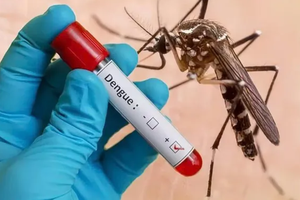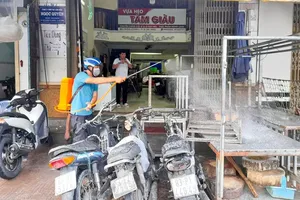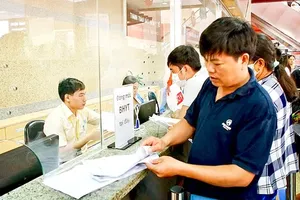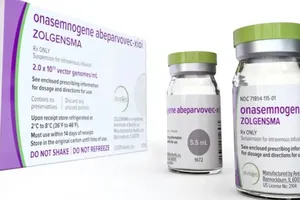Markets in major cities nationwide are flooded with foodstuff consumed traditionally during the Tet (Lunar New Year) festival, but this has also brought out concerns over their safety and quality.
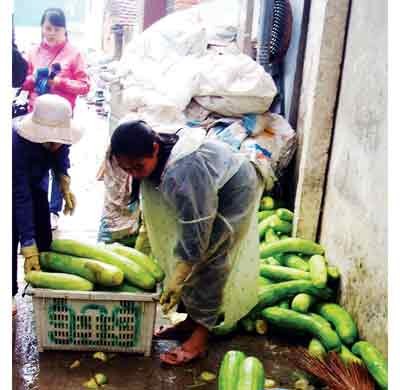
Despite strenuous efforts by concerned agencies to inspect foodstuff sold in the markets, foods without labels of origin and/or manufacturing and expiry dates are plentiful, particularly doing a major holiday season like Tet.
The path to Xuan Dinh Village in Hanoi, a traditional maker of Tet sweetmeats, is wet and dirty. But it is strewn with hundreds of winter melons that have been peeled.
Even as they are cut into pieces, they fall to the ground and are picked up and put into a lime cistern to bleach without cleaning.
All the households engaged in making the popular mut, sugar-coated fruits like candy that are very popular Tet sweetmeats, peal, slice and dry fruits on dirty roadsides with no protection from dust or flies.
Hundreds of tons of these sweetmeats are consumed yearly in markets nationwide. Some large candy firms even import them from villages for packaging and selling.
Nguyen Huu Khiem, Chairman of Xuan Dinh’s People’s Committee, said around 30 facilities making mut failed to meet food safety and hygiene standards, because the space for making them had been lost to rampant urbanization.
Meanwhile, border gate districts in the North are jam-packed with a parade of trucks. Vehicles wait to transport goods and foods imported from the neighboring countries.
Big markets in border gate districts carry huge quantities of a variety of foods, fruits, jams, candies and even live and slaughtered fowl and other livestock that are brought over the border.
However, this can also be a discomfiting sight. Most of the foodstuffs have no labels of origin, and other important information, while the internal organs of several animals soaked in chemicals emit a foul stench. Some owners of these nausea inducing food revealed they would be converted into packed food items with clear indication of origin and expiry date.
Hanoi’s Hang Buom Street, a confectionery hub, is crowded with customers from the dawn to night. Every shop overflows with a variety of jams, sweets and beverages.
Shop assistants invite customers in promising high quality foreign goods. It is in these places, however, that heath authorities have found many goods stored for the Tet holiday without clear indications of origins and/or expiry dates.
Inspectors have found many fake goods in the capital city’s most famous wholesale market, Dong Xuan. They also found people surreptitiously selling chemical sweeteners, borax and chemical essence to enhance the flavor of candies, sausages and other items.
Nguyen Thanh Phong, deputy head of the Health Ministry’s Vietnam Food Administration, said several dozen food safety inspection groups are working constantly, but they cannot control every business.
Some 50,000 companies in the country are registered to produce sweetmeats, and 80 per cent of them are small businesses, he noted, adding inspectors were not equipped with devices that can help spot toxic food quickly.
He advised residents to be prudent in choosing products made by known companies with clear labels and quality indications.




